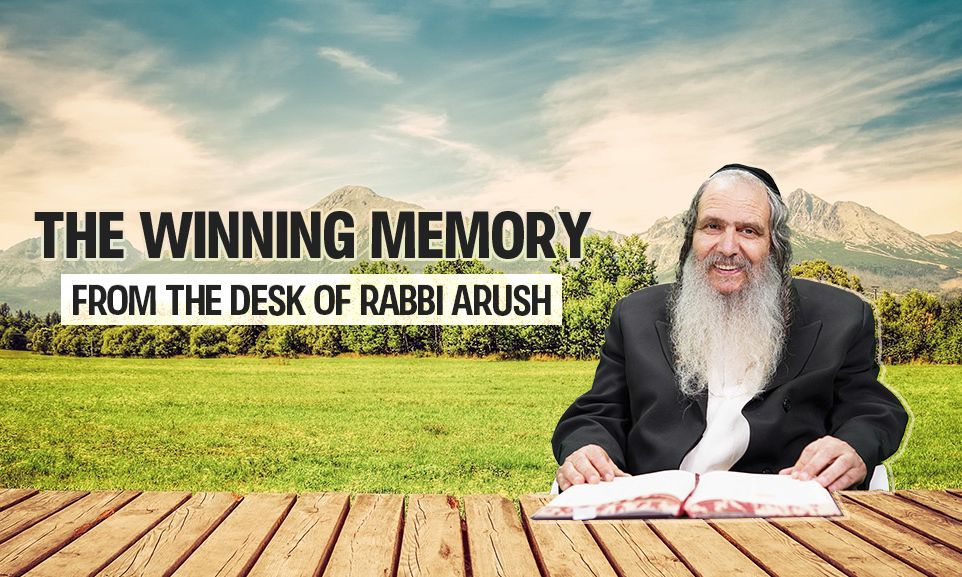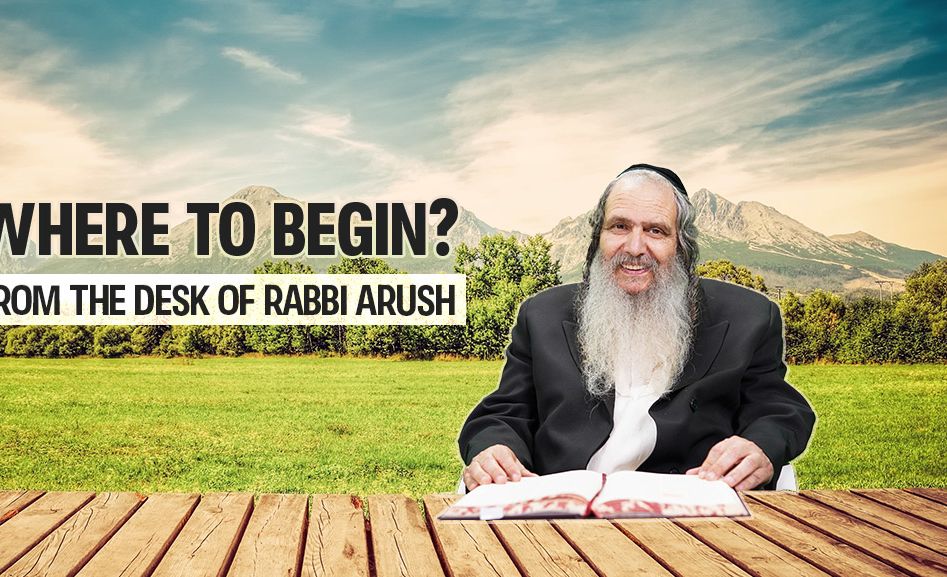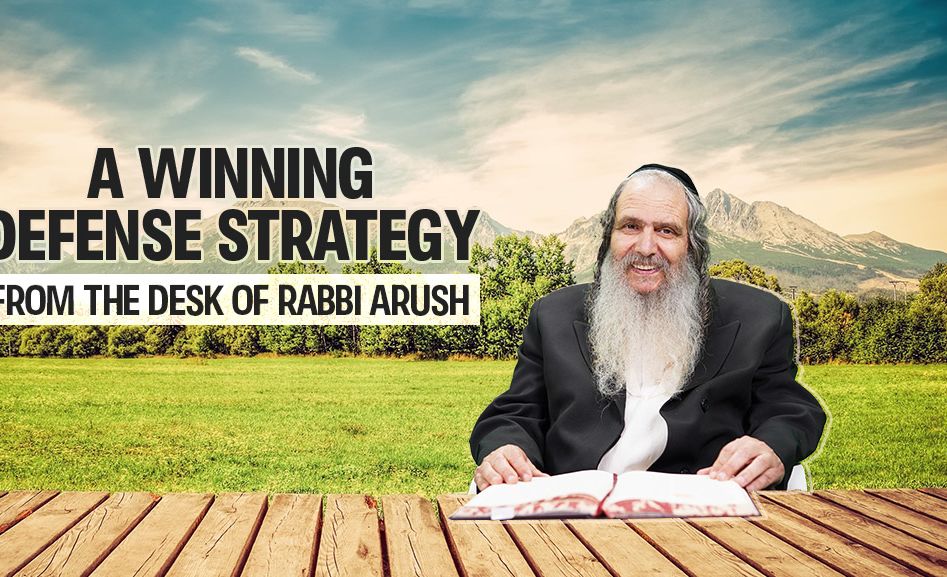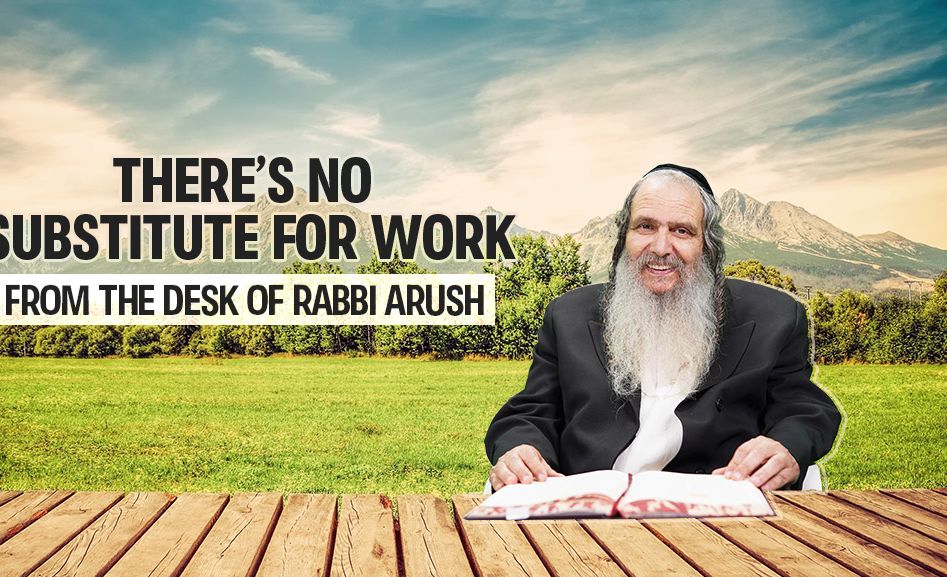
The Winning Memory
You’ve seen him – the one who learns Torah and seems to have infinite knowledge, can answer any question, and remembers everything. How does he do it?! How can he keep such a mass of information in his head?! Rabbi Arush gives a surprising answer...

Translated from Rabbi Arush’s feature article in the weekly Chut shel Chessed newsletter. The articles focus on his main message: “Loving others as yourself” and emuna.
Tzaddikim and Supercomputers
Computer and technology products today demonstrate to us clearly the importance of memory. The functioning and capacity of every gadget, from a camera to an MP3, from a computer to a telephone – are limited to the size of the memory. The moment the memory is completely full, it is impossible to insert any more information into it until some of the previous information has been erased. And besides, a gadget whose memory is full crashes and does not function properly.
But when one looks at the great rabbis we see the opposite: The more Torah knowledge they acquire, the greater their capacity, to the point that you can find tzaddikim who know so many books, that one would have to devote many months of study and memorizing just to be able to remember the names of all the books they know, not to mention their contents.
In addition, there is an amazing characteristic of the great rabbis of the Jewish People: Many great rabbis knew the entire Torah at a very young age, and there are those who died very young, such as the Ari Hakadosh, Rabbi Nachman, the Ramchal and many others – and yet, the Torah they knew left a tremendous mark on many generations after them.
What is their secret? How does the brain of tzaddikim work the opposite way of the laws of nature regarding memory?
The Secret of Memory
Rabbi Nachman explains this in a very short teaching (Torah no. 110) and says that that is precisely the difference between things material and spiritual: Material things take up space, whereas spiritual things do not take up space. Every piece of data in the computer is a reality that occupies space according to its size; but the Torah in its essence is spiritual light, spiritual abundance; and a spiritual thing is not limited and does not take up space.
But the question to be asked is that in Torah study, too, we see many who learn the same number of hours and don’t manage to reach such a broad and deep knowledge of Torah. What is it that causes the difference among the Torah learners themselves?
Rabbi Nachman explains that though the Torah is spiritual, but sometimes the person learning it “materializes” it and makes it into technical data, into a study essentially material. As a result, such Torah is bound by the laws of nature of memory capacity and is very limited. Only spiritual Torah that maintains its spirituality and holiness is not limited and doesn’t occupy space.
And therefore, the Torah warns us: “This Book of Torah will not depart from your mouth”, which Rabbi Nachman explains in his own way: Lo yamush (will not depart), from the word mamashut (physical reality). “Do not make the Torah into a physical reality”. In other words, take care not to turn the spiritual Torah into physical and material information.
And that is why one sees a tremendous range in the Torah learners: One might know only bits and pieces, and barely remember what he learned, whereas his fellow Jew is blessed with tremendous, infinite knowledge; knows to answer questions on any topic, and remembers everything, as if everything he ever learned is right in front of his eyes.
Not Knowledge but Divine Abundance
What does this depend on? It depends on the learner’s refinement, says Rabbi Nachman. If the talmid chacham (Torah scholar) who is learning the Torah is pure and honest and refined and his actions are good and fine and his brain contains only Torah and not various forms of nonsense, and he speaks pleasantly and his language is clean – then the Torah he learns retains its holiness and spirituality, and he will grow in Torah and will rise higher and higher, to the very top, above all laws of nature. But if, chalila, it is the opposite…
In a different teaching (Torah no. 32) Rabbi Nachman explains at greater length about the way to reach a state of refinement so as to receive the Torah as spiritual light:
Rabbi Nachman explains that there is sechel, in other words, the brain’s ability to grasp concepts, called “divine abundance”. In other words, all the wisdom of Torah that one merits is received directly from the Creator of the World. And that is the best definition of tzaddikim and great Torah scholars from whose light we benefit. They are not just learned, rather, they merit to know the Torah through divine abundance!
But how does one merit such abundance? Rabbi Nachman explains that every Jew has a menorah, and the menorah is likened to the divine wisdom. To reach this sechel, which is the aspect of divine abundance, the menorah must be sanctified. And what is the menorah? Rabbeinu brings from the holy Zohar that says – “The menorah – that is the head”. And just like the menorah has seven branches, so too in the head there are seven orifices, which are the two ears, the two eyes, the two nostrils, and the mouth.
Every Jew who wants to receive spiritual abundance must sanctify these orifices. That is our lifework, if we truly wish to receive the light of Torah, the spiritual light of the Torah, not just a collection of physical items. We have to sanctify ourselves by maintaining the kedusha of our own private menorah branches.
All Included
Rabbi Nachman explains the way to sanctify each one of the menorah’s branches:
The holiness of the mouth – to avoid any falsehood, which means anything that is against the Torah.
The holiness of the nose – yirat Shamayim (fear of Heaven), as it says, “Veharicho (he will sense the smell) of a spirit of fear for Hashem.”
The holiness of the ears – emunat chachamim (believing in the sages), lending his ear to listen to them and do as they say.
And the holiness of the eyes – to protect one’s eyes from seeing anything bad.
Truly, on each and every thing here one can write volumes, and we have already written many articles about the holiness of the eyes, believing in the sages, and fear of Heaven. Each item demands from one many years of labor, and, seemingly, this is not at all easy.
But that is not so. One can sum up all these things and condensing them into one simple piece of advice:
Spend an hour every day doing hitbodedut (personal prayer)!
An hour of hitbodedut a day includes the kedusha of all the candles. Because it is, first of all, emunat chachamim – believing Rabbi Nachman who ordered people to devote an hour a day to hitbodedut and to conversing with one’s Creator – and so, one is sanctifying one’s ears. And hitbodedut is an expression of yirat Shamayim, because a person who fears Hashem truly, checks himself every day and doesn’t live his life without giving an account, and so he sanctifies his nose.
In an hour of hitbodedut one has time to examine oneself and one’s actions and to ascertain how the day has gone in terms of being careful of one’s speech and eyes, and the main thing is that one can pray at length every day that Hashem will grant one the ability to protect one’s mouth and eyes and sanctify them properly.
The Light of the Way
And that is Rabbi Nachman’s great power: He takes the words of the holy Zohar and all the books of mussar and brings them down to us – condensing everything into one piece of advice that anyone can do, one that has tremendous power to sanctify a person and refine him completely so that he will be able to learn Torah like the great tzaddikim and receive divine abundance and endless spiritual light in his Torah learning.
The moment a person manages to do an hour of hitbodedut every day, even if he has not yet reached the level of complete refinement and he still needs days and years of work to refine himself completely, is on his way already. He’s on the right track, and in Heaven he is viewed as if he has already arrived, because he has taken the biggest and most significant step on his part, and therefore even when the process is still going on, he is already granted the gift of the Torah illuminating him with a spiritual light, and he can reach high levels of Torah.
By acquiring the spiritual Torah and fulfilling the passuk, “They will not depart from your mouth”, we will have the merit to have the end of that passuk fulfilled as well: “…from the mouth of your seed and the mouth of the seed of your seed, now and forever.”







6/19/2023
Thank you for this beautiful text